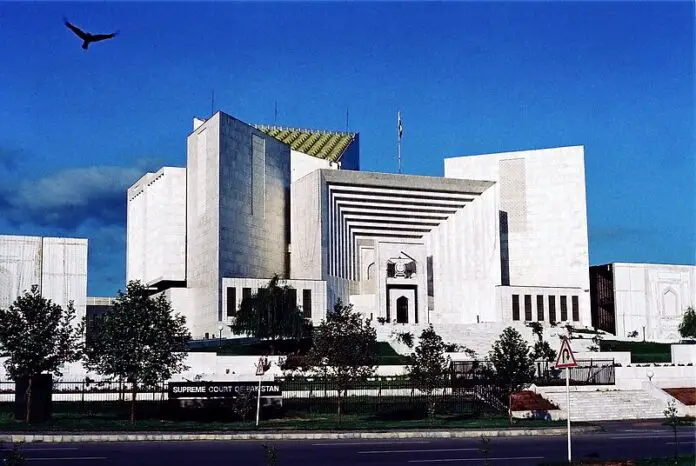The Supreme Court of Pakistan, led by Chief Justice Qazi Faez Isa, has decided to adjourn the hearing on the case pertaining to personal promotion on public development projects for a period of two weeks. The decision came during a session presided over by a three-member bench, wherein Chief Justice Qazi Faez Isa helmed the proceedings.
During the hearing, representatives from all four provincial governments, along with the federal government, pledged to refrain from engaging in personal promotion on public projects and assured compliance with the Supreme Court’s directive. It is worth noting that in 2023, the Supreme Court had issued a ruling prohibiting personal advertising on development initiatives.
In light of these developments, the Supreme Court has called for affidavits from the four provincial governments and the federal government regarding their commitment to curbing personal promotion on public projects.
Chief Justice Qazi Faez Isa expressed unity among the provinces on the issue of personal promotion and noted the absence of opposition to this stance across all provinces.
Furthermore, during the proceedings, Chief Justice Qazi Faez Isa raised questions regarding the number of law officers in Sindh. The provincial government’s legal representative disclosed that there are currently 80 law officers in Sindh.
Chief Justice Qazi Faez Isa remarked on the disproportionality of having 80 law officers in Sindh compared to the absence of a permanent law officer in Islamabad. He also noted the varying numbers of law officers in other provinces, including 18 in Balochistan, four in Khyber Pakhtunkhwa, and 86 in Punjab.
In response, the Punjab government’s lawyer informed the court that the number of law officers in Punjab is being reduced from 86 to 66.
Chief Justice Qazi Faez Isa expressed concern over the financial burden imposed by the salaries of law officers in Sindh, amounting to Rs0.5 million per month per officer, totaling 40 million rupees, which is ultimately borne by the people of Sindh. He emphasized the need for better support from law officers in court proceedings and questioned the necessity of personal promotion on projects funded by public money. He highlighted the consensus among political adversaries on the issue and reiterated the court’s commitment to upholding democracy and the welfare of the people.







